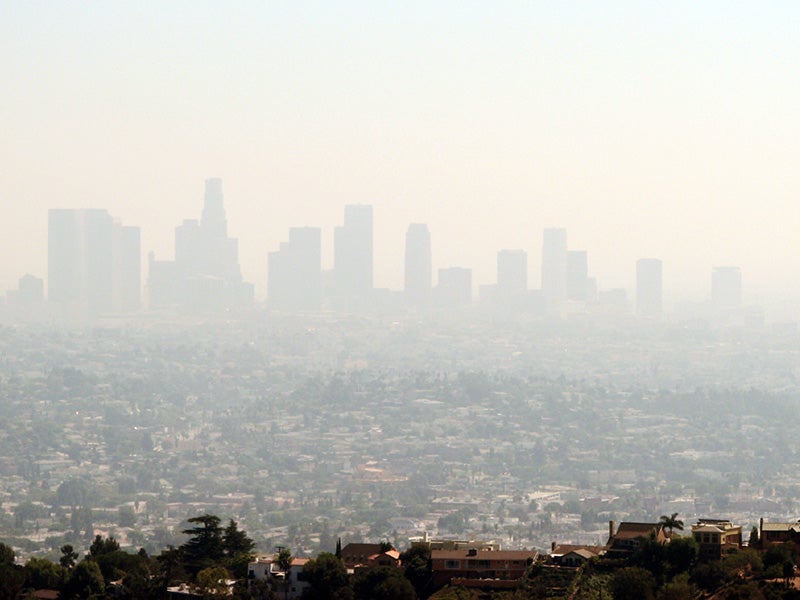House of Representatives Votes to Repeal States’ Clean Air Standards, Bucking the Law and Congressional Watchdog
Abuse of Congressional Review Act veers far outside norms of the law
Contacts
Zoe Woodcraft, zwoodcraft@earthjustice.org
Today, the U.S. House of Representatives voted to use the Congressional Review Act to repeal the approval of state clean air rules that curb truck and car tailpipe pollution. This has never before been done in the history of the Clean Air Act and the Congressional Review Act.
“The House’s vote today is a reckless abuse of the Congressional Review Act,” said Raul Garcia, Vice President of Policy and Legislation at Earthjustice. “It is disturbing to see our representatives reject the rule of law. GAO and the Senate Parliamentarian have both concluded the Congressional Review Act does not apply to EPA’s waivers for state clean air standards. While today’s vote is a short-term and symbolic victory for executives in the oil and gas industry, it won’t change the course of the country’s inevitable transition to healthy and efficient electric vehicles. We hope to see clearer minds prevail in the Senate so that the rule of law is ultimately preserved.”
The Government Accountability Office (GAO) concluded in 2023 and reiterated in March of 2025 that EPA’s waivers under the Clean Air Act are not subject to the Congressional Review Act. The GAO, often called the “congressional watchdog,” is an independent agency that works for Congress, examining how taxpayer dollars are spent and providing Congress and federal agencies with fact-based information to help government work efficiently. Earlier this month, the Senate parliamentarian reaffirmed that California’s Clean Air Act waivers are not subject to the Congressional Review Act.
The stronger tailpipe standards that states choose to adopt to protect their residents provide billions in economic benefits and public health savings, and save thousands of lives from the heart and lung problems associated with tailpipe pollution. In 2023, EPA granted California’s waiver for the Advanced Clean Trucks rule, which sets a sales target for truck manufacturers to gradually shift the models they sell from dirty fuels like diesel to zero-emission trucks. Then in 2024, EPA approved California’s waiver for the Advanced Clean Cars II standard. This regulation reduces pollution from cars, SUVs, and pickup trucks made in model years 2026 through 2036 by increasing the number of zero-emission vehicles automakers offer consumers; it is expected to provide $13 billion in economic benefits in California alone.
Nearly 50 years ago, Congress protected California’s right to adopt standards more protective than the federal government’s regulations in order to address the state’s air quality crisis. After the EPA grants a waiver for California’s regulations under the Clean Air Act, other states whose air quality has violated federal standards can adopt California’s more protective regulations for the health of their own residents. So far, over a dozen states have chosen to adopt more protective standards this way in a balanced process that has stood for over five decades.

Additional Resources
About Earthjustice
Earthjustice is the premier nonprofit environmental law organization. We wield the power of law and the strength of partnership to protect people's health, to preserve magnificent places and wildlife, to advance clean energy, and to combat climate change. We are here because the earth needs a good lawyer.